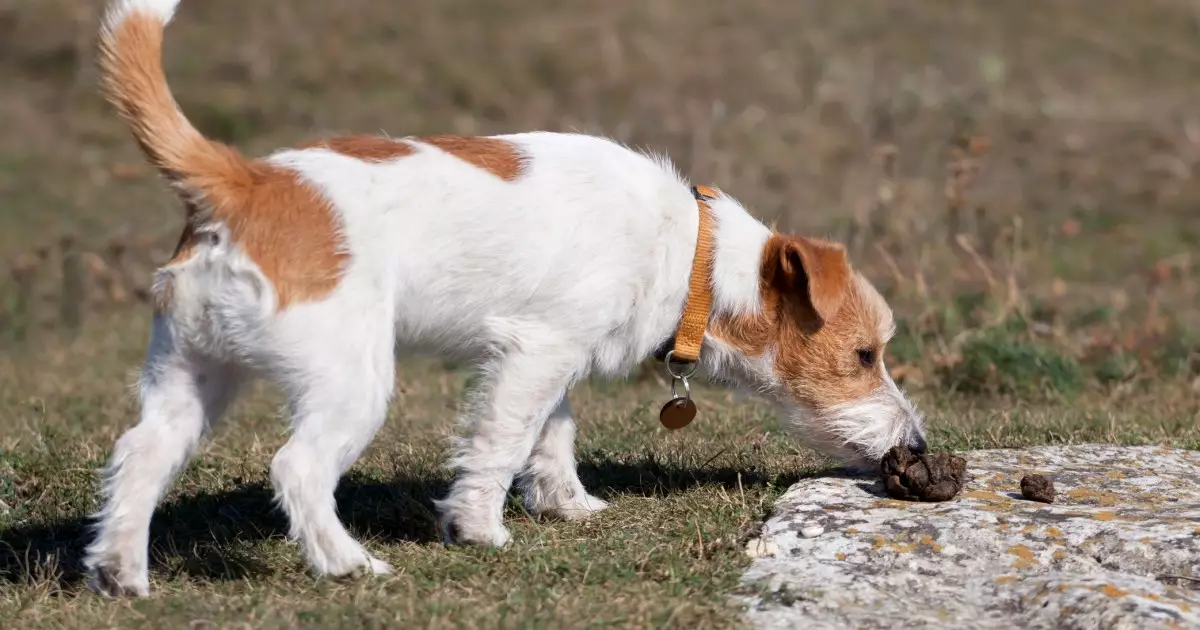Dog owners often find themselves puzzled when their beloved pets engage in the notably unappealing habit of eating feces. This behavior, scientifically referred to as coprophagia, can be disconcerting and leads many to wonder about its origins and motivations. While it might seem like an aberrant behavior, coprophagia is not uncommon among dogs. In this article, we will explore the various reasons behind this behavior and offer insights into how to address and manage it effectively.
To understand why dogs consume feces, it is crucial to consider their evolutionary background. Canines, like many animals, have instincts that were honed in the wild. In their natural habitats, canines often ingest their own droppings for a variety of reasons. One of the most critical instincts is to maintain a clean den to protect their young from predators. This behavioral trait has been passed down through generations; even domestic dogs may exhibit the urge to eliminate waste discreetly.
Additionally, dogs possess an extraordinary sense of smell, aided by an organ known as the vomeronasal organ. This adaptation allows them to gather information about their environment, including the dietary habits and health of other animals from their feces. In this light, consuming feces can be likened to a form of olfactory exploration. By ingesting feces, dogs might gather valuable information that tells them about potential mates, competitors, or the well-being of other animals.
Behavioral psychologists often point to the role of learning in the development of coprophagia. It is common for puppies to explore their environment, and this exploration can include tasting a variety of substances, including their own waste or that of other animals. For many puppies, feces resemble the already-digested food they are accustomed to, which can lead to curiosity or even habitual consumption.
Moreover, negative reinforcement can inadvertently encourage this behavior. If a dog is punished for defecating indoors and witnesses their owner cleaning up the mess, they might learn to consume their waste as a way to “erase” evidence and avoid punishment. It is essential for pet owners to employ positive reinforcement techniques to teach their dogs appropriate bathroom habits and discourage behaviors founded on fear or anxiety.
In some cases, coprophagia can be indicative of underlying health issues. Dogs with poor nutrition or digestive problems may consume feces in an attempt to extract additional nutrients. Some dogs lack the necessary enzymes to digest certain modern dog foods fully, potentially leading them to seek alternative sources of nutrition by consuming their waste.
If coprophagia appears to be a symptom rather than a behavioral trait, it may be wise to consult a veterinarian. Possible health conditions can range from parasitic infections to pancreatic issues that impede nutrient absorption. Additionally, sudden changes in behavior, particularly around food intake, might warrant a checkup to rule out medical concerns.
Environmental factors also contribute significantly to the prevalence of coprophagia. Dogs that experience neglect or isolation may turn to harmful behaviors, like consuming feces, as a response to stress or boredom. Dogs thrive on companionship and activity, and a lack of mental or physical stimulation can push them to engage in less desirable actions for attention—good or bad.
In extreme situations, dogs that are not provided adequate food might resort to eating feces as a means of survival, trying to reclaim lost nutrients. While this is a distressing scenario, it illustrates the depth of the issue. Owners should ensure that their pets receive adequate care and attention—not only to prevent coprophagia but to enhance their overall well-being.
If your dog is exhibiting signs of coprophagia, it is crucial to adopt a multifaceted approach. Firstly, consult with a veterinarian to identify any potential health problems that could be contributing to this behavior. Appropriate dietary adjustments might be necessary to ensure that your dog is receiving the right nutrients.
Moreover, providing sufficient mental and physical exercise will significantly diminish boredom-related behaviors. Engaging your dog in daily walks, playtime sessions, and training exercises can foster a happier, healthier pet. Remember that positive reinforcement is key; rewarding good behavior and teaching commands effectively can lead to a reduction in undesirable actions.
While the act of coprophagia may be alarming for dog owners, understanding its origins can facilitate effective management strategies. With proper attention and care, it’s possible to modify this behavior and ensure a healthier and more fulfilling lifestyle for your canine companion.

